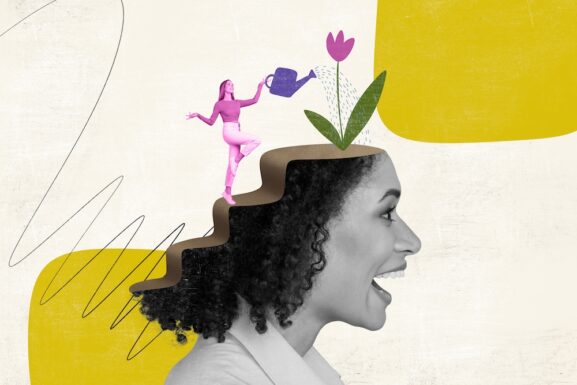How Do Patients Feel After Ketamine Therapy? Medical Experts Weigh In
Although ketamine was approved by the FDA in 1970, many people are still unaware of the effects it has on the body and mind. Each ketamine therapy session is unique, and patients may feel a range of outcomes following therapy. These range from tiredness and disorientation, to gaining enlightment with increased energy.
Broadly, patients report positive outcomes of ketamine treatment. Any negative side effects are often minor, prevalent during the peak of treatment, and subside within two hours after a ketamine session.
Common side effects of ketamine therapy may include drowsiness or dream-like feelings, loss of appetite, sleep disturbance, calmness, euphoria, or headaches. Furthermore, you may feel changes to your emotional state or feel an emotional vulnerability.
It is common for patients to be taken to a calm setting after treatment. This is when clinic staffers observe and assess the clinic before releasing them.
However, it is essential to note that each individual therapy outcome depends on the participant, and can vary widely for each person.
To gain a more tangible grasp on the feelings, side effects, and emotions after ketamine therapy, we spoke with different medical experts in the field. Each medical expert shares experiences from clients, describing how patients feel after ketamine therapy.
RELATED: What Are The Biggest Misconceptions About Ketamine Therapy?
Dr. Mark Leeds – The Mood Center
Two of the most common questions that new patients ask is ‘What does ketamine infusion feel like?’ and ‘What does it feel like after ketamine infusion?’ We are able to provide reliable answers to these questions based on the many patients who have experienced ketamine before and after, and have reported on how it feels.
In part, the responses depend on why the patient is getting ketamine infusion treatment.
For example, a person getting the IV infusion for depression treatment may describe an elevated mood and less anxiety at the conclusion of a session of IV ketamine infusion therapy. A patient who comes in for chronic pain may feel less pain afterward.
During ketamine treatment, patients often describe a warm, floating sensation, and a spiritual sense of being more than just a physical brain and body. After the ketamine therapy session is completed, patients typically describe feeling calm and refreshed.
— Dr. Mark Leeds, Consulting Physician at The Mood Center
Dr. Steven Radowitz – Nushama
After a journey, many Nushama members describe being at peace, more accepting, less reactive, and more at ease. They feel that they have more free will to respond to triggers in life rather than just react based on old fear patterns.
People often feel elevated — colors may seem brighter, their mood elevated, confidence higher, energy increased, creativity inspired, outlook optimistic — some call this ‘afterglow.’ It’s possibly related to a period of increased neuroplasticity following psychedelic use.
A person may feel happier, more open, and more mindful. To maintain this afterglow, Nushama offers integration therapy where people are encouraged to recount their experience, describe their feelings during and after, and find ways to apply the insights gleaned to their daily lives.
Other forms of integration include journaling, meditation, yoga, reading books on spiritual wisdom, prayer, sound healing, cacao, and even art therapy, helping someone reconnect to the positive feelings and changes they experience.
— Dr. Steven Radowitz, Chief Medical Officer and Co-Founder at Nushama
Lexie Loman – Integrative Psychiatry of Oklahoma
Everyone experiences the medicine differently during and post medicine session. Some clients report feeling energized or tired after their sessions and some have reported feeling extremely hungry while others have no appetite.
Most clients report positive effects the day after their ketamine sessions including increased positive mood, a “quieter” mind, or being more in control of their thoughts than they did prior to their treatment.
However, there can be some unwanted side effects the day of your medicine session post session or the day following your medicine session including headaches and nausea. Clients have also reported feeling more emotionally sensitive the days following their treatment which may be a neutral side effect due to the nature of processing their trauma and what may come up during a medicine treatment.
— Lexie Loman, Licensed Professional Counselor at Integrative Psychiatry of Oklahoma
Dr. James Simonson – Integrative Psychiatry of Oklahoma
Depending on the level of my patients’ journey or experience I try to give them some useful tips going into the following days after their infusion. I have found that a lot of patients get a headache the following day and we like to counsel them about this and recommend Tylenol and hydration to alleviate the pain.
Psychedelic/Ketamine experiences can carry a lot of emotional weight with them and leave the patients emotionally raw or vulnerable. I counsel my patients about the possibility of this and recommend that they try to minimize stress for the remainder of the day after an infusion.
At our clinic we work hand in hand with a therapist trained in Ketamine Assisted Psychotherapy who can help our patients navigate the specific emotional connotations of their psychedelic journey. Classically, the levels of experiences range from non ordinary states of consciousness, to out of body experiences, and ultimately to ego dissolution.
We strive to prepare our patients for the uneasiness that can occur after a deep ego dissolving journey. The model we adhere to is to see our patients then next day to help them process and integrate the experience back into their lives.
— Dr. James Simonson, Owner and Founder of Integrative Psychiatry of Oklahoma
Kate Yeadaker – Nue Life
When my patients complete a ketamine journey, there are usually some truly beautiful and profoundly insightful takeaways. There are the obvious ones, like a deep sense of peace, relaxation, and oftentimes, bliss. Many times people will say, ‘it is so hard to put into words,’ and I feel that the ineffability of the experience actually adds to the beauty of it.
There are some universal themes that may come up: unity consciousness (we are all connected), everything is going to be OK, I am love, and I am loved, all is well and all will be well.
People oftentimes will report they were able to visit a memory or an incident from the past, and see it in a different light. This expansive perspective allows the patient to see the bigger picture, and reflect on it with more compassion for themselves and others.
Forgiveness, gratitude and acceptance are also major themes. They may meet with loved ones, or spiritual or religious avatars.
This medicine offers a sweet and healing respite from the business of life, it slows down the mind, and allows many people to just be in stillness. In stillness, the answers to many of our life’s greatest questions can be answered. I have seen it enable people to let down some of their armor, and soften into an egoless state.
Although there are commonalities, no two ketamine journeys are ever exactly alike, and every person experiences this medicine in their own way, through their own lens.
With proper guidance on set, setting, and integration, the experience itself does have the potential to be life-changing and powerfully transformational. I am honored to walk this path with my patients, being a witness to such incredible healing has been immensely fulfilling and deeply moving.
— Kate Yeadaker, Registered Nurse Practitioner at Nue Life
Dr. Andrew Cooper – Caledon Clinic
A narrative around the experience is fundamentally personal and individual and, in many ways, inexpressible. Not everyone has a “beautiful” experience, and every heroic journey requires courage. To leave the session and post session experiences unexpressed reduces expectation for future patients and protects their mental set.
— Dr. Andrew Cooper, Founder and Medical Director of Caledon Clinic
Daniel A. Brenner – Cambridge Biotherapies
Ketamine therapy can be transformative in a number of ways.
First of all, ketamine is, by far, the most powerful antidepressant we have ever discovered. But perhaps more importantly, ketamine has the effect of quieting the mind, in much the same way as meditation.
Over time, with repeated infusions, ketamine quiets the chatter we all live with inside — especially the negative or self-critical chatter. And when that inner noise lessens, it becomes easier to see the landscape of your life — what matters to you, what you can change, and what you cannot.
The greatest peace comes from deep acceptance, and ketamine can facilitate that process. Acceptance is central to our capacity to love, be loved, and feel fulfilled.
— Daniel A. Brenner, M.D., Medical Director and CEO of Cambridge Biotherapies
Debra Ferguson – Daytryp Health
The experience and outcomes of ketamine therapy can vary for each patient. Immediately following a ketamine treatment, most patients report feeling a reduction in symptoms for their condition. For people with chronic pain conditions, it may take more than 1 session to experience relief.
After multiple ketamine sessions, patients usually continue to feel the effects of ketamine for a period of time, often many weeks to several months, and sometimes even longer. The long-term effects of ketamine can include increased energy and focus, improvement or total resolution of mental health symptoms, and a reduction or elimination of pain and inflammation.
The effects of ketamine therapy on patients go beyond just symptom relief, as many report feeling an increased sense of purpose and connection to themselves and others, as well as a general sense of calmness.
The exact duration and intensity of the effects can vary depending on factors such as the dosage and the individual’s response to the treatment.
— Debra Ferguson, Contributing Member at Daytryp Health Psychedelic Wellness Center
Kendall Miller – Healing Ketamine
Everyone is different. Try not to get discouraged if you aren’t seeing the results you want yet. Sometimes people see / feel results right away but often it’s weeks after the infusions are complete.
— Kendall Miller, CRNA, BLS, ACLS, is a skilled nurse anesthetist at Healing Ketamine
Is Ketamine Therapy Right For You?
If you are considering ketamine therapy, it is important to remember that is not for everyone. Proper screening by a reputable clinic is important to determine if ketamine treatment is right for you. It is essential to evaluate risks, weighing additional factors you may have.
Trained clinics will also assess and aid you if you happen to experience any side effects after treatment. Likewise, they will help with any aftercare you may need.




Cindy Smith
April 18, 2023 at 11:54 pmI’ve had my first session with ketamine therapy and it has completely settled my mind thoughts. It is hard to describe but I believe this is what I am needing with my depression and self esteem. I feel good physically and emotionally. Looking forward for my next treatment.
Justin Diaz
September 7, 2023 at 11:34 amGood morning Cindy l have had 6 infusion treatments, it’s been 3 weeks, feeling better